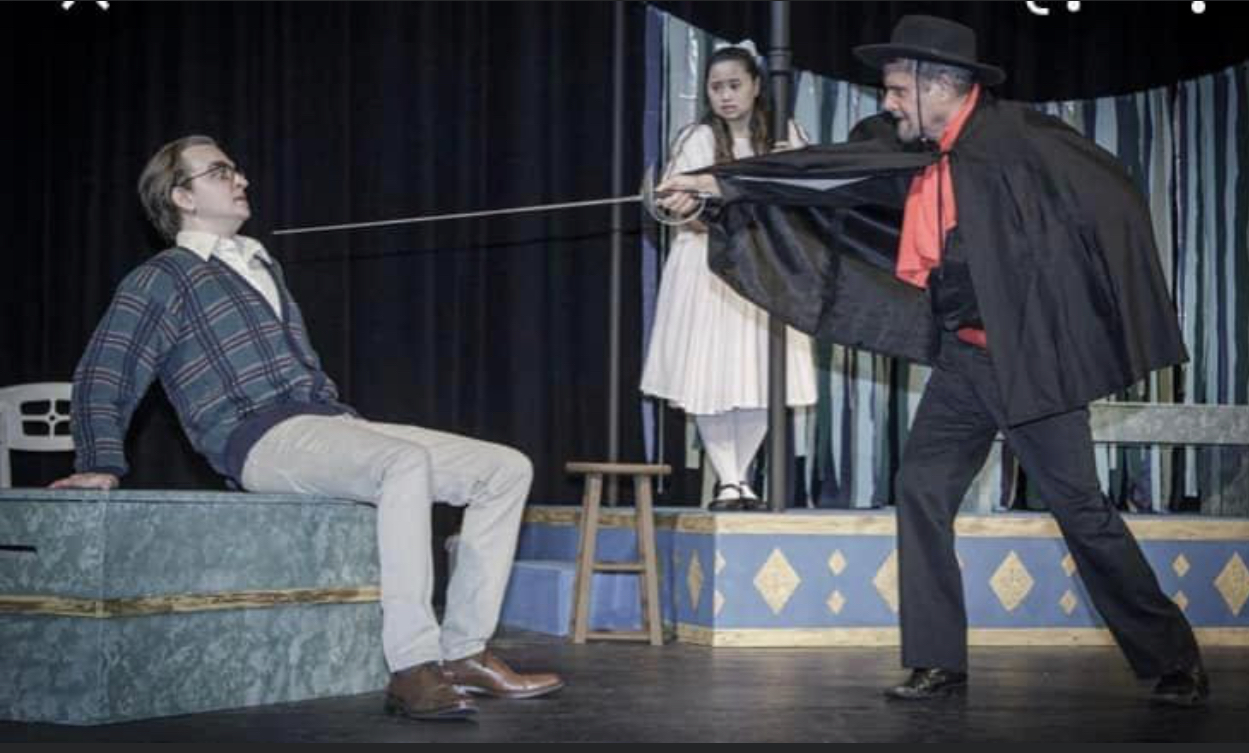We are in the middle of our run of “The Fantasticks” at the Oster-Regent Theatre and the meaning behind this musical, which first debuted in 1960, strikes me as particularly relevant today.
“The Fantasticks” for those who are not familiar with it, is a musical by Tom Jones (no, not the “What’s New Pussycat?” Tom Jones, but the brilliant playwright) with music (“Try To Remember,” “Soon It’s Gonna Rain”) by Harvey Schmidt.
It is based on the late 19th century book “The Romancers” by French poet, Edmond Rostand, which satirizes the sentimentality and escapism of that period’s romantic literature.
“The Fantasticks” follows that perspective but ultimately delivers the message that although life is filled with obstacles, it is possible to find our way to outcomes we hoped for.
That may appear as naively optimistic, but there’s more substance to optimism than we often give it credit for. “Happily, ever after” endings have their place in our personal folklore because what better reason could there be keep our proverbial noses to that proverbial grindstone?
“The Fantasticks” demonstrates life and love as both comical and to be celebrated. Love is born from the cycle of life that contains both sorrow and joy.
There are religious roots to this thought. Hindus and Buddhists call this “samsara”: Life, birth, death, rebirth.
In Judaism “Olam Hazeh” is life’s opportunity to make the world a better place. Islam follows ”Haqiqa” which means “mystical truth.”
Christian orthodoxy is divided among its branches, but each church is based on following moral codes.
Even though religions do not necessarily share orthodoxy, they can share orthopraxy; our ethical behavior; how we conduct ourselves in our immediate lives.
Through this lens we can see compatibility between religions, between disparate beliefs, and between romanticism and reality.
Mythologist, Joseph Campbell, once stated: “Every God, every mythology, every religion, is true in this sense: it is true as metaphorical of the human and cosmic mystery.”
“The Fantasticks” is not a religious morality play, it is a simple story of young love told poetically. It is rooted in soil. Love is forged from life’s trials and tribulations. And to find that truth, the play tells us it’s okay to believe in the unknown and even in a little bit of magic.
A sense of magic can allow us to remove ourselves, if just for a moment, from turmoil and connect us again with the hopefulness that rests within our hearts.
There’s a universal hope that things will work out and that the experiences we have, many unavoidably rotten, will, if we follow a path of understanding, reveal the rapture of joy.
El Gallo, the narrator of this “fantastick” voyage, says near the end: “There is a curious paradox that no one can explain. Who knows the secret of the reaping of the grain? Who knows why Spring is born from Winter’s laboring pain? Or why we all must die a bit, before we grow again.”
Those questions resonate in June of 2022. As fitting is a verse that opens the play: “Try to remember when life was so tender that dreams were kept beside your pillow.”
